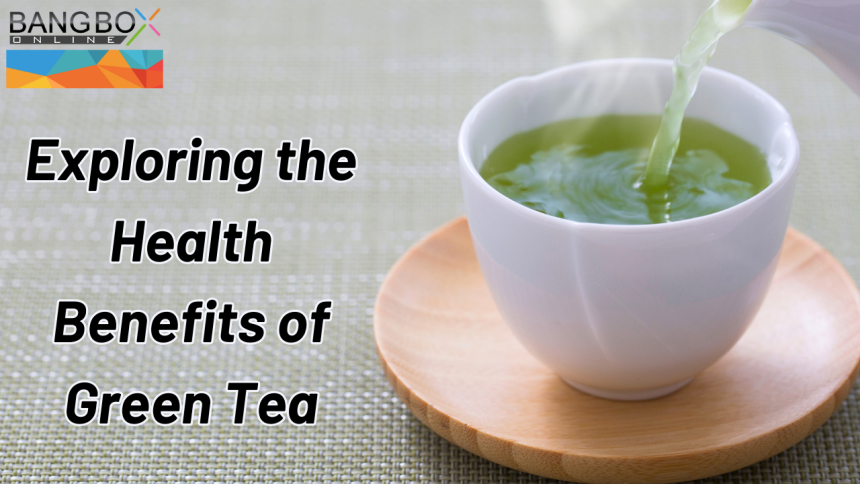
Exploring the Health Benefits of Green Tea
2023-08-24 08:02:14 - Ghulam Hussain
Green tea is a type of tea that is made from the leaves of the Camellia sinensis plant, the same plant from which black tea and oolong tea are derived. What sets green tea apart is its minimal oxidation process during production, which helps it retain more of its natural compounds and antioxidants compared to other types of tea.
Green tea has gained significant attention for its potential health benefits, which are attributed to its rich content of bioactive compounds. Some of the key components in green tea include:
- Catechins: Green tea is particularly high in catechins, which are a type of polyphenol. The most abundant catechin in green tea is epigallocatechin gallate (EGCG), known for its strong antioxidant properties. Antioxidants help to neutralize harmful free radicals in the body, potentially reducing the risk of oxidative stress-related diseases.
- Caffeine: While green tea contains less caffeine than coffee, it still provides a mild stimulant effect. Caffeine can help improve alertness, concentration, and overall cognitive function.
- L-Theanine: This amino acid is found in green tea and has calming effects. It can counteract the jitteriness that some people experience from caffeine consumption, promoting a more relaxed state of mind.
- Vitamins and Minerals: Green tea contains various vitamins and minerals, such as vitamin C, vitamin A, and potassium. These nutrients contribute to overall health and immune function.
The potential health benefits of green tea include:
- Antioxidant Properties: The high concentration of antioxidants in green tea can help protect cells from damage caused by oxidative stress, potentially reducing the risk of chronic diseases like heart disease and certain types of cancer.
- Heart Health: Regular consumption of green tea has been associated with improved cardiovascular health. It may help lower bad cholesterol levels (LDL cholesterol), reduce blood pressure, and improve blood vessel function.
- Weight Management: Some studies suggest that the compounds in green tea can aid in boosting metabolism and promoting fat oxidation, which could be beneficial for weight management.
- Brain Health: The combination of caffeine and L-theanine in green tea may contribute to enhanced cognitive function, improved mood, and reduced stress.
- Diabetes Management: Green tea consumption might help regulate blood sugar levels and improve insulin sensitivity.
- Cancer Prevention: While research is ongoing, certain compounds in green tea, particularly EGCG, have shown potential in inhibiting the growth of cancer cells and preventing tumor formation.
It's important to note that while green tea offers potential health benefits, it's not a miracle cure, and individual responses can vary. To experience these benefits, it's recommended to consume green tea as part of a balanced and healthy diet, and not to rely solely on it as a solution for health issues.
It's also worth mentioning that excessive consumption of green tea might lead to caffeine-related side effects, and its potential interactions with certain medications should be considered. As with any dietary changes, it's advisable to consult with a healthcare professional before making significant additions to your diet, especially if you have preexisting health conditions or are taking medications.
